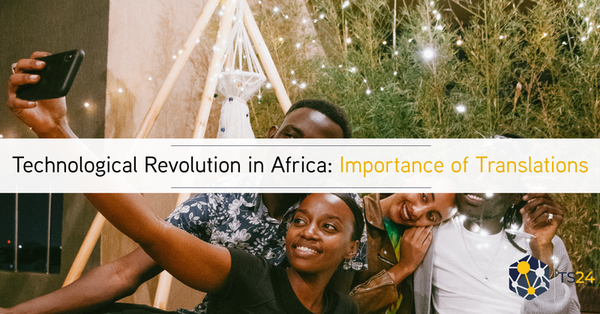Africa has been one of the most challenged continents with economic instability and human necessities over the past decades. This was the primary cause of underdevelopment in the area.
However, with technological advancements, most parts of Africa have experienced modernization that helped bloom the economy.
Technological advancements are vital for a nation’s success in today’s world. From the proper use of resources to significant improvement in other sectors such as education and infrastructure, a country requires technological innovations to benefit greatly.
In recent years, most parts of Africa, including Kenya, Egypt, South Africa, and Mauritius, have become technologically advanced.
Technological Revolution in Africa
Technology plays a vital role in boosting a country’s economy. Thus, technological advancements are essential to promote sustained regional economic growth.
Recently, the improvements of the tech sector promoted rural-urban migration in Africa because technology encourages the development of new businesses, opens the door for more job opportunities, and provides access to a better lifestyle.
In recent years, Kenya developed its technological sector, introducing many powerful resources to improve economic growth and sustainability.
Moreover, foreign investments from other countries have provided Africa with an opportunity to expand its technological sectors.
South Africa, Senegal, Nigeria, Tanzania, Ghana, and Kenya experienced increased internet usage from 2013 to 2017. Overall, internet usage increased in Sub-Saharan Africa.
This betterment of internet facilities caused more people to buy smartphones. As a result, there was a significant rise in smartphone users.
For example, in 2001, there were about 330,000 mobile phone users. This figure jumped to 30 million in 2013. Thus, technological advancements such as improved internet connection and provision of mobile phones with better connectivity positively impact modern Africa.
Impact of Technological Advancement in African Countries
With rapid digitization and technological advancements, Africa has seen improved economic growth because with digitization comes better infrastructure and connectivity.
For example, in the last decade, mobile phone subscriptions in Africa rose from 54 million to 250 million from 2008 to 2013.
Some parts of Africa, such as Kenya, also have better internet speed. In addition, with a growing number of people who have access to mobile phone facilities and better connectivity, Africa experienced a significant rise in rural-urban migrations.
With a decline in the cost of the internet, Africa opened the door to many online job opportunities. Recently, Africa experienced a rise in fintech and e-commerce companies that play an essential role in the region’s economic sustainability and encourage foreign investments.
Job Opportunities
With banking and technological advancements, Africa can use its resources well. Also, since Africa has oil, gas, and mineral wealth, it can expect to receive more foreign investments in the future by adequately using its reserves.
This presents Africa with excellent opportunities for more development in the future.
In recent years, South Africa, Angola, and Nigeria became the largest economies of Africa which grabbed many international businesses because Africa is becoming a potential market for various global companies.
With advanced technology and banking methods, users can send and receive global payments through their smartphones.
Moreover, using foreign funds, improved infrastructure, technological advancements, and rapid economic growth created more job opportunities for people in Africa.
Africa also has a higher percentage of young, educated labour that can work in technological sectors in the future.
With more development in the region, we can expect many foreign businesses to play an even more active role in the continent, which will lead to a rise in demand for African translation services.
How Has the Technological Advancement Led to a Demand for African Translation Service?
With the advent of technological growth, Africa has become the hub for foreign businesses and trade. Emerging as a consumer market, Africa has grabbed the attention of many external business partners that want to benefit from the region’s potential.
But translations cause hindrances when discussing business objectives and strategies in the African market. Every country in Africa has a different language, and only 13% of the African population speak English which creates a language barrier for external business partners.
South Africa has about eleven national languages, so even if international business owners wish to communicate their terms to locals, they will have to contact an translation service provider.
An African translation service can help translate African languages accurately by maintaining the concept for many words that do not have a word-to-word translation. Moreover, many businesses have to sign contracts, so they need to translate these documents.
A reputable African translation service provider will translate legal documents, websites, marketing materials, and business terms. Moreover, many African businesses have to communicate with foreign companies, so using an interpreter is also something to think about.
A language barrier negatively affects business terms if companies cannot discuss strategies without the assistance of a professional translation agency.
This is why the demand for a professional African translation service is sought, as it makes the road to technological and economic development easier. Native translators with the appropriate certification can provide linguistically fluent and accurate African language translations.
Moreover, highly accurate and efficient translations are necessary for technology, medicine, and finance. Without that, business firms cannot properly comprehend the terms and conditions, resulting in a significant loss for the external business partners and the African market.
Most Translated African Languages
The vast continent of Africa has linguistic diversity with over 2000 languages. This diversity of distinctive languages has increased the demand for an African translation service. Here are some of the most frequently translated African languages.
- Swahili
- Fulani
- Yoruba
- Somali
- Amharic
- Afrikaans
Conclusion
Africa’s rapid growth of digitization has made the region one of the most notable markets for foreign businesses. This is why many international enterprises understand the importance of professional translation services.
Those looking to expand their business in the continent need to consult translation and interpretation services to benefit from the lucrative market and establish stronger business relations in the region.




